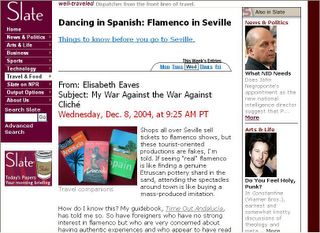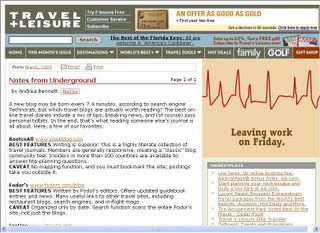
Slate
I'm no expert on Time Out Guides, as they don't produce any guidebooks to Southeast Asia, but I've glanced at their other titles and admired the slick looks and high production values. I've also used their regional weekly publications to find out what's happening in places like New York City, and always got a kick out of their snarky, collegiate level humor. Hip, cool, always in the know.
But this style of always being the "insider" and "cooler than anyone else" doesn't translate well into guidebooks, as pointed out by Slate a few months ago. Thanks Rolf, for reminding me about this amusing and insightful article before it disappears into oblivion.
A few snippets:
Anyone who has used the excellent weekly Time Out guides to London or New York is familiar with their self-consciously savvy voice. It works beautifully for reviewing new bars. It's utterly grating when describing 15th-century architecture.
Rather, my Time Out destination guide was written by and for people who think the optimal amount to know about anything is a little. Knowing nothing is bad, because it shows. But knowing too much about one thing is bad too, because it takes up brain space you could devote to shallower things, like the names of all the nominees in the lesser Oscar categories. The Time Out mind-set is all about achieving a vast, shallow pool of knowledge.
Personally, though, I'll take my information without the snarky bells and whistles. In traveling, I don't want to be counseled on what to enjoy. I cling to the hope that visiting a new place can be about more than what's hot and what's not; that I can still do a few things without mediation. After all, I travel partly to escape the sort of place where knowing the names of obscure bands has become a substitute for enjoying music, and getting into the newest restaurant a stand-in for appreciating food.
Read the Rest
